A Point of View: Why gardening is really about digging your own grave
- Published
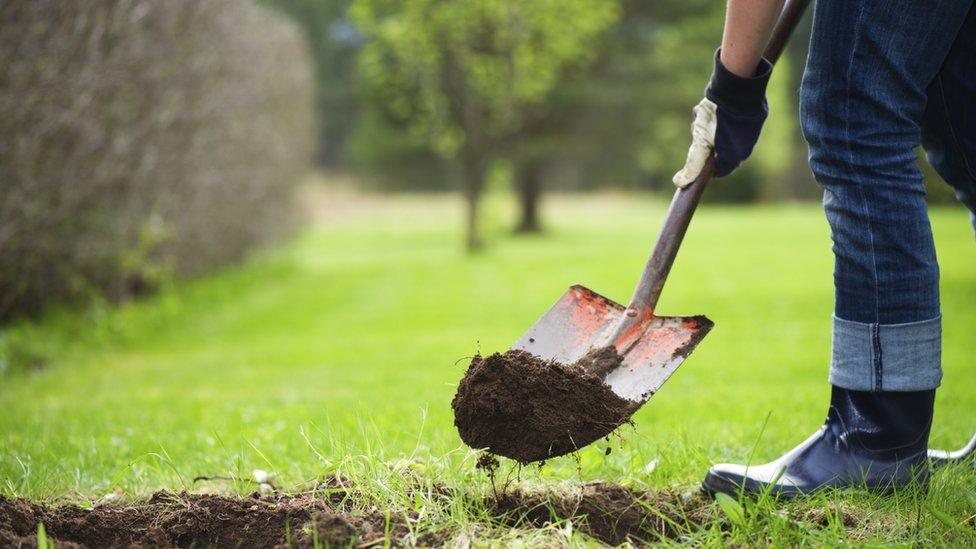
Tending the weeds or mowing the lawn? You're really just grappling with your own mortality, says Will Self.
I remember when my mother was dying, the well-meaning psychotherapist attached to the oncology department gave her a cassette tape with a guided meditation on it. A warm and evenly-toned voice calmly instructed her to let go of her fear of death by imagining herself rising from her sickbed and walking out into a beautiful sunlit garden. Needless to say, my mother was having none of this. "Why the hell would I want to go into the bloody garden!", she inveighed. "It's bad enough dying of cancer without being reminded you haven't done the weeding."
While in the midst of life Mother would say things such as: "I love my garden!" Or: "Gardening gives me such pleasure!" But there was always a brittleness about her enthusiasm - for the truth was, while she loved flora, she found the actual graft of cultivating it a colossal bore. So did I - our semi-detached suburban house had garden front and back - neither especially large plots, but there was space for flower beds, an oak tree and a rowan, together with many yards of shaggy privet hedge. Radiating out around us were leafy cul-de-sacs and crescents, all in conformity with Ebenezer Howard's conception of the garden city. As a child I had little interest in town planning - and still less in gardening.
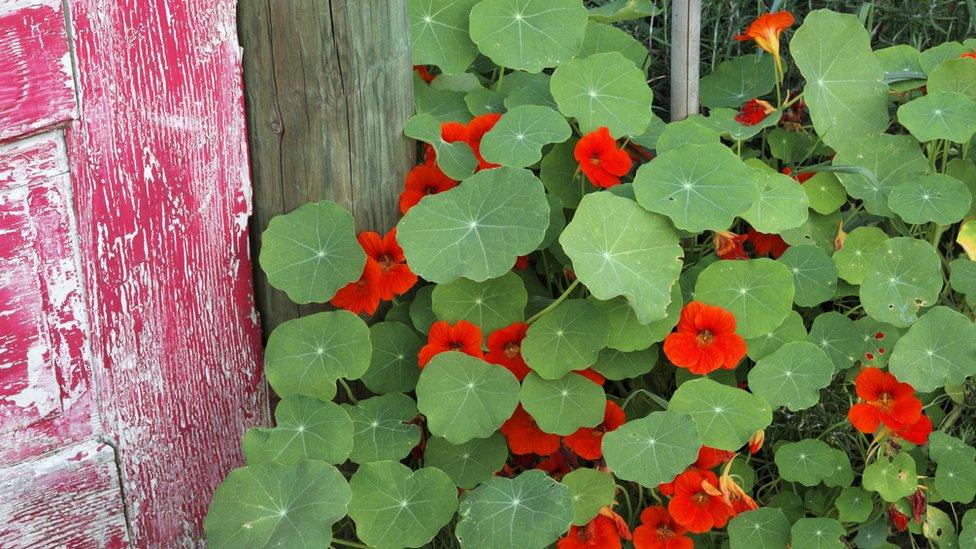
Yes, yes, there were the inevitable nasturtiums - while one year I watered some sour and yellowish tomatoes into being, but mostly the weeding and clipping and mowing was something the whole family squabbled over, while such cultivation as there was seemed to happen inadvertently. Instead of engaging with the reality of the garden, I made of it a fantasy realm. I lay splayed over the forked branches of the oak tree, or stood, swaying, in the very crow's nest of the rowan, looking out across the tossing waves of suburban greenery. I burrowed through the hedges, marvelling at their desiccated interiors, festooned with spiders' webs and mortared by pulverised worms' casts − for me, the garden was a lost world of frass from which the occasional prehistoric pottery ginger beer bottle would be disinterred.
In the late 17th Century, the wealthy began to build galleries on to their country houses along which the ladies could promenade - the outdoors being considered altogether too farouche for polite society. In time, these galleries were transplanted outdoors, and the aspect of formal gardens in the early 18th Century bore the impress of their domestic origins - yew and box hedges took the place of walls, framing vignettes of the surrounding flowerbeds that mimicked the paintings hung indoors. The long walk out of captivity had begun − although to begin with, it was simply the cell itself that was expanded, as the formal garden morphed into the landscaped garden, which in turn was a sort of scale-model of the countryside beyond, with added features and follies.
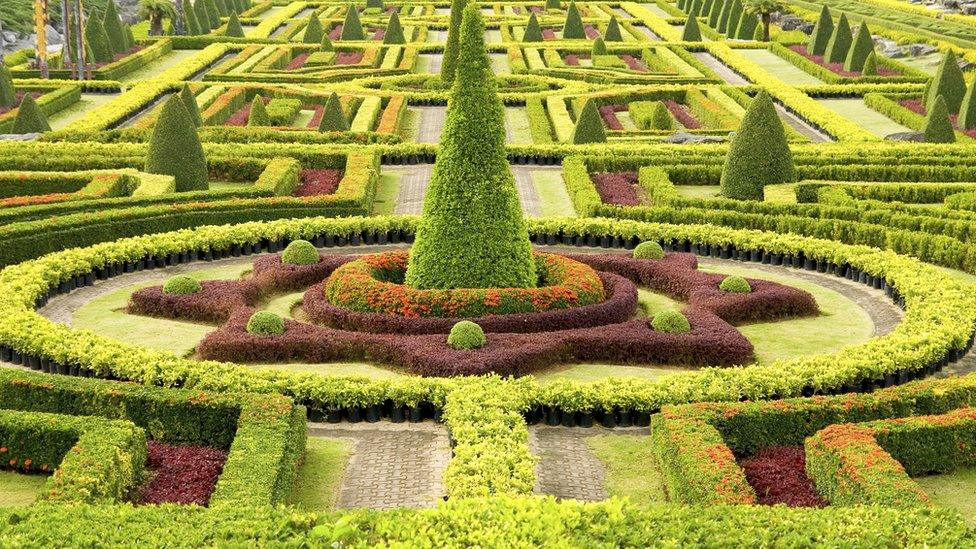
That the British garden in particular should play this role of mediating between home and the great outdoors is hardly surprising when we consider just how man-made our countryside is. In other parts of the world there is genuine wilderness - and a lot of it, but no corner of this right, tight little island has been unimpressed by the human boot. Bearing this in mind, our gardening activities are simply intensive farming writ small rather than the exercise of some manifest destiny. As with all our pruning and grafting we aim to bring every region of the realm into productive conformity with the others. Certainly, this was the way I viewed these matters as a child. My father was a doughty hill-walker, and he hauled his sons up many a Lake District peak - yet inevitably he'd undercut the transcendent view by noting that the entire vista of rock and grass was a function of transhumance. So it was I grew up with a profound sense of claustrophobia − aware there was no handful of British dust that hadn't already been… handled.
I suppose I could've worked to overcome this by engaging more fully with the growing rather than the built environment - I've had temporary suzerainty over many gardens in my life, but whatever green fingers I might have developed simply withered at the ends of my cack hands. I observe those close to me who garden and I can see it gives them great pleasure, while also engendering in them a sense of connection to the great web of life. Yet when I walk past the front gardens of suburban houses I see simulacra of environments rather than the environment itself. Many of the garden species the British have come to love are the fruit of colonialism, and entire miniature habitats - such as the rock garden - were developed to display the flora of imperial possessions. Indeed, in some cases it's the plants themselves that have fled from the garden. One might wish that British homes were as hospitable to human migrants as our habitat has been to the rhododendron, which, with its brilliant blue and purple efflorescence, has now come to typify the Scots Highlands far more than tartan.
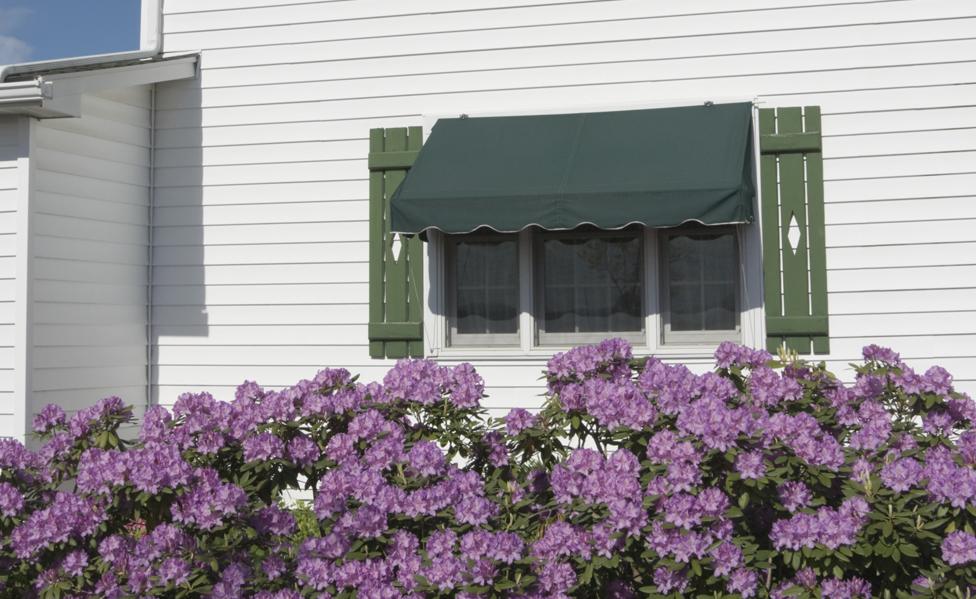
Indeed, Scots suburban gardens - by contrast with such rampageous shrubbery − often manifest an extreme, almost Japanese, asperity - raised beds of stones graced by a few cactuses, shaved lawns, shivering pampas grass, and solemn statuary the same shade as the textured louvers hanging rigidly in the picture window. The impulse here seems to be to utterly subdue nature − clip it, dig it, and generally concrete it over until a casual passer-by has difficulty in distinguishing front garden from front room. Some urbanite friends of mine once took this anti-natural gardening to its logical end-point and carpeted their garden. Yes, you heard me right - they laid a carpet over every square inch of it, then got out the white plastic chairs, cracked a bottle of bubbly, and celebrated their deliverance from toil.
Of course, I doth protest too much, very likely because I can feel the gardening years approaching − a time when, unhitched from the go-round of economic activity, I will attach myself instead to the wheelbarrow of life. Doing the edges with a pair of clippers then fumbling up the clippings… Raking up the wind-blown leaves then picking them from the rusty tines… Pottering about with flowerpots then going in to make a pot of tea… In Herbert Read's modernist fairy tale The Green Child, the elderly of a troglodytic people accept their extinction philosophically by retreating into rock niches where they sit beneath dripping stalactites, refuse food, and meditate until they've been transformed into stalagmites. Arguably, our valetudinarian gardeners are engaged in something very similar - we may be ostensibly digging up a rose bed, but really we're preparing ourselves psychically for the time when we'll be pushing up the daisies.
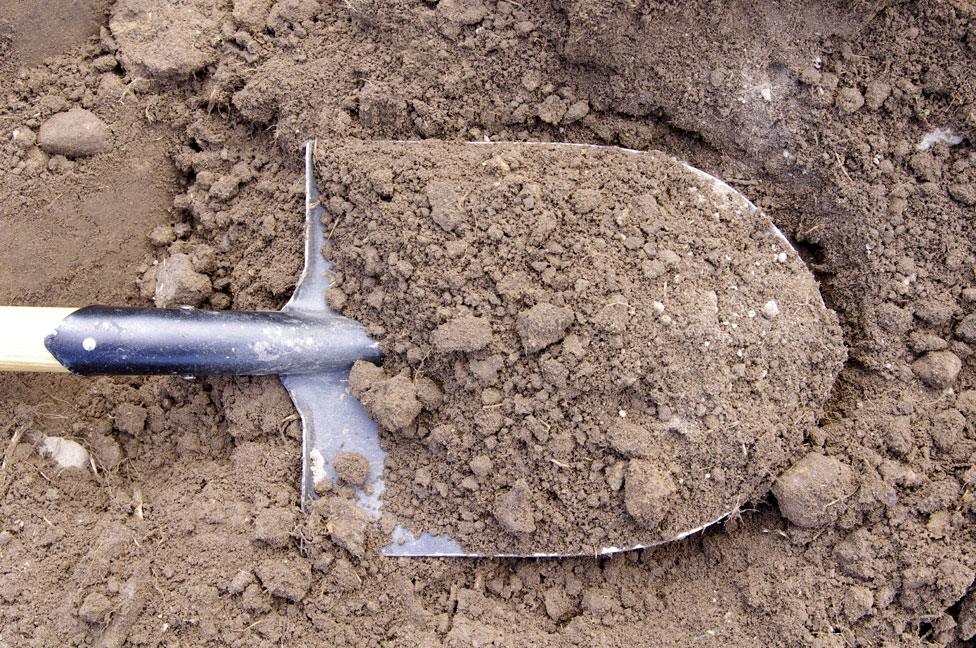
What Dylan Thomas hymned as "The force that through the green fuse drives the flower" will subside in all of us, eventually − but my own intimation of this was, to say the least, precocious. For what I mostly did in our suburban garden throughout the interminable summers of my childhood was dig holes. As I grew older the holes grew deeper, and by the time Terry Jacks's maudlin ditty Seasons in the Sun, about a young boy dying, hit the top of the pops, I was 13 and had dug so deep that my hole had the aspect of a mineshaft, complete with pit props bodged up out of old two-by-fours. Eventually, I hit the water table, and so lay at the bottom of my damp grave, staring up at the earthen-framed patch of sky, while the trannie beside me plainted: "Goodbye, Papa, it's hard to die / When all the birds are singing in the sky…"
This was a garden I could've welcomed my moribund mother into − nothing so soothing as a semi-permeable barrier between the domesticated and the wild, but a sort of airless lock within which we pant for a day or a month before heading off into the true wilderness of our dissolution.

More from the Magazine
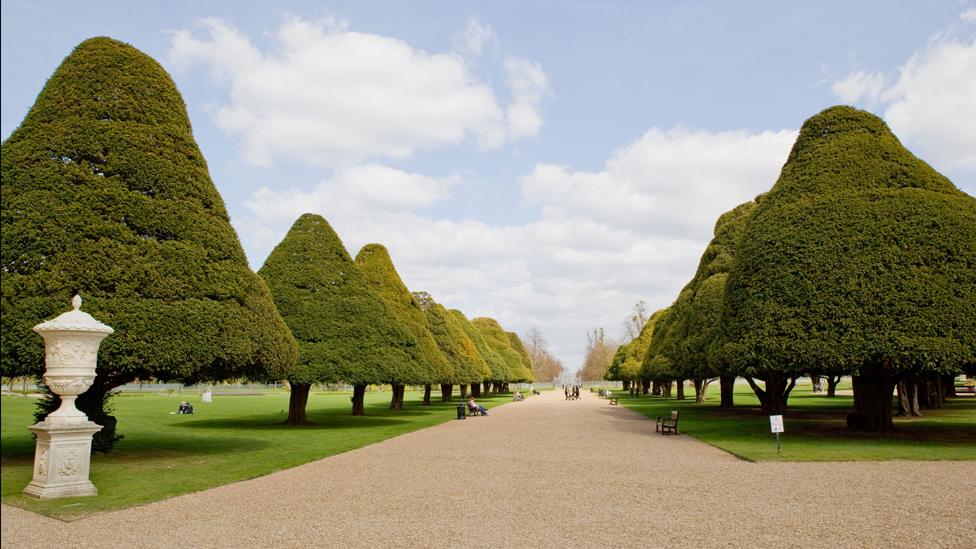
Say it with flowers, goes the saying. But sometimes the message is not so innocent - that beautiful garden may have more to do with spin and intrigue.
The shady side of gardening (January 2012)
A Point of View is broadcast on Fridays on Radio 4 at 20:50 BST and repeated Sundays 08:50 BST
Subscribe to the BBC News Magazine's email newsletter to get articles sent to your inbox.